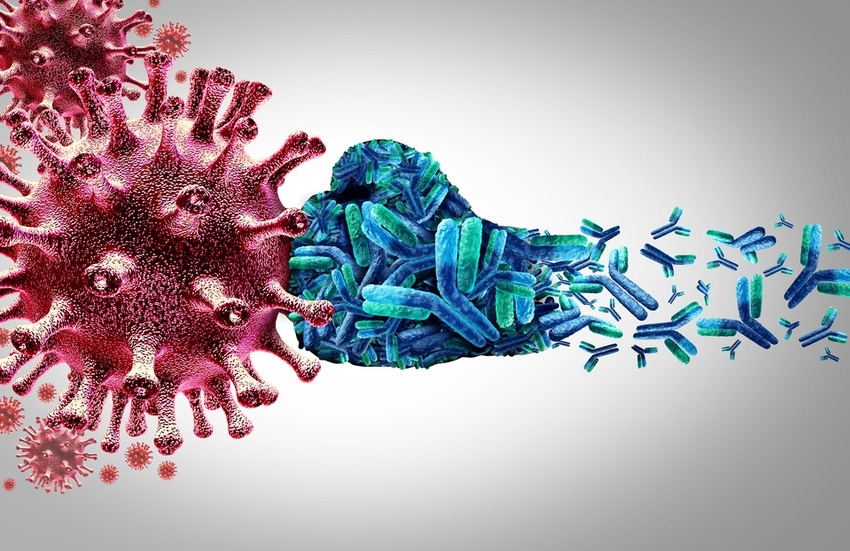Content Spotlight
Podcast: MilliporeSigma says education vital to creating unbreakable chain for sustainability
MilliporeSigma discusses the importance of people, education, and the benefits of embracing discomfort to bolster sustainability efforts.

Regeneron says it can adapt its COVID-19 antibody cocktail to be effective against the Omicron variant if necessary, thanks to lessons learned the first time around.
Omicron was the word of the day at the Evercore ISI HealthCONx Conference yesterday, as drug companies assess the potential impact of the recently discovered variant.
One company that spoke about its efforts against the new strain was Regeneron, which has been at the forefront of therapeutic development against COVID-19 with its antibody cocktail REGEN-COV treatment authorized for use in emergency cases as post-exposure prophylaxis for COVID-19 by the US FDA.

Image: Stock Photo Secrets
REGEN-COV consists of two neutralizing IgG1 recombinant human monoclonal antibodies, casirivimab and imdevimad, that target the receptor-binding domain of the SARS-COV-2 virus’ spike protein.
While the firm is evaluating whether Omicron may reduce the conveyed immunity of the cocktail, Neil Stahl, EVP of R&D, said that due to the REGEN-COV doses given are very high so “even if there is some hit on neutralization, it’s still quite feasible that the doses we give will still block Omicron if it does indeed take over its spread.”
He added that like the vaccine developers assessing the effectiveness of their products against Omicron, it should take around two weeks to evaluate the feasibility of REGEN-COV. But if the cocktail needs to be tweaked or additional antibodies developed, Regeneron is “optimistic” it can move faster than before.
“We had worked with the FDA very closely the first time around and I think we learned a lot and they learned a lot about how to streamline our next-generation antibodies of which we have a very large stable that are designed to again make cocktails and work together either as a twosome or a threesome,” Stahl told investors.
“The flexibility of the FDA about providing a EUA [emergency use authorization] will depend on how Omicron turns out to be, whether it takes off here, whether it really is a super spreader and how serious of an illness it causes, but we plan to work together very carefully.
“We learned a lot from the first time around about how to look at viral neutralization both in vitro as well as in patients, viral clearance in patients. And so, of course, we’ll start with that to see whether the doses we have and whether the antibodies we picked are effective and as a cocktail. So I’m optimistic that we can move faster even than last time.”
You May Also Like